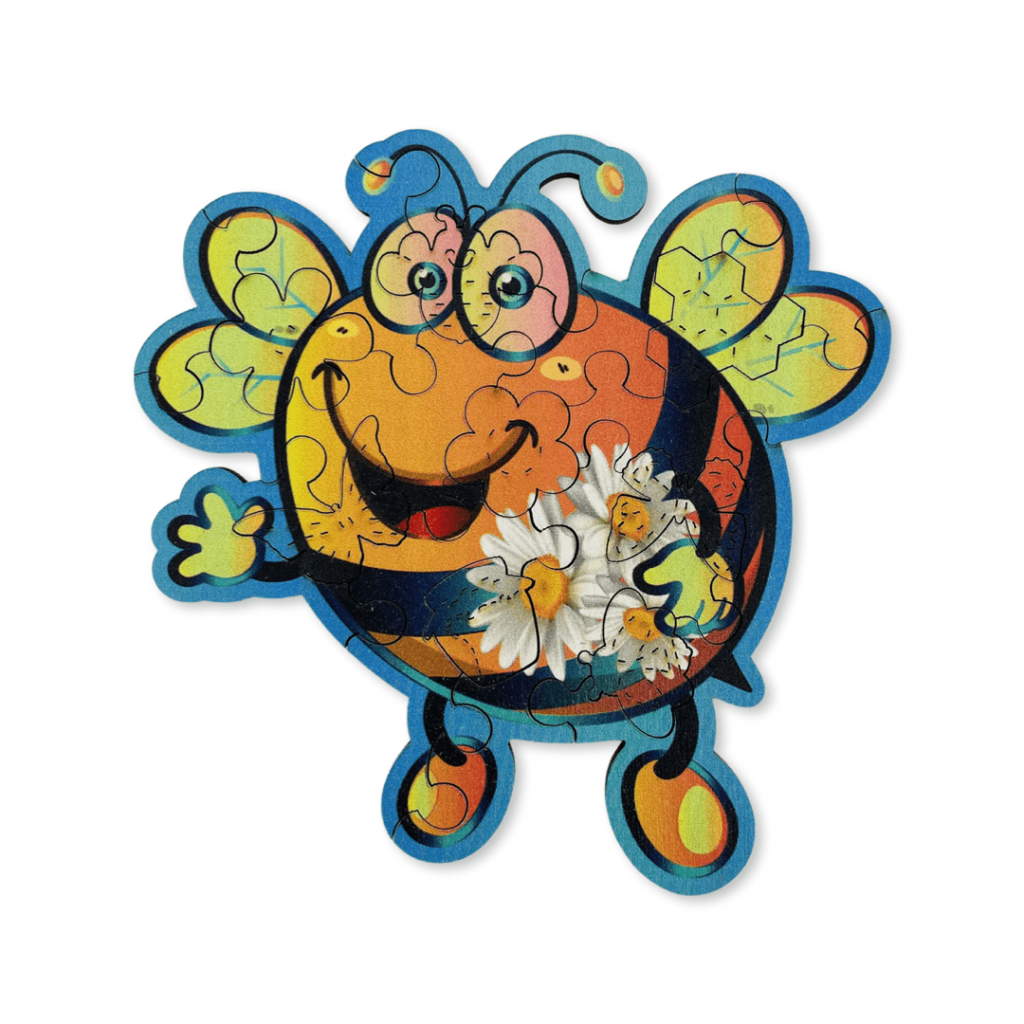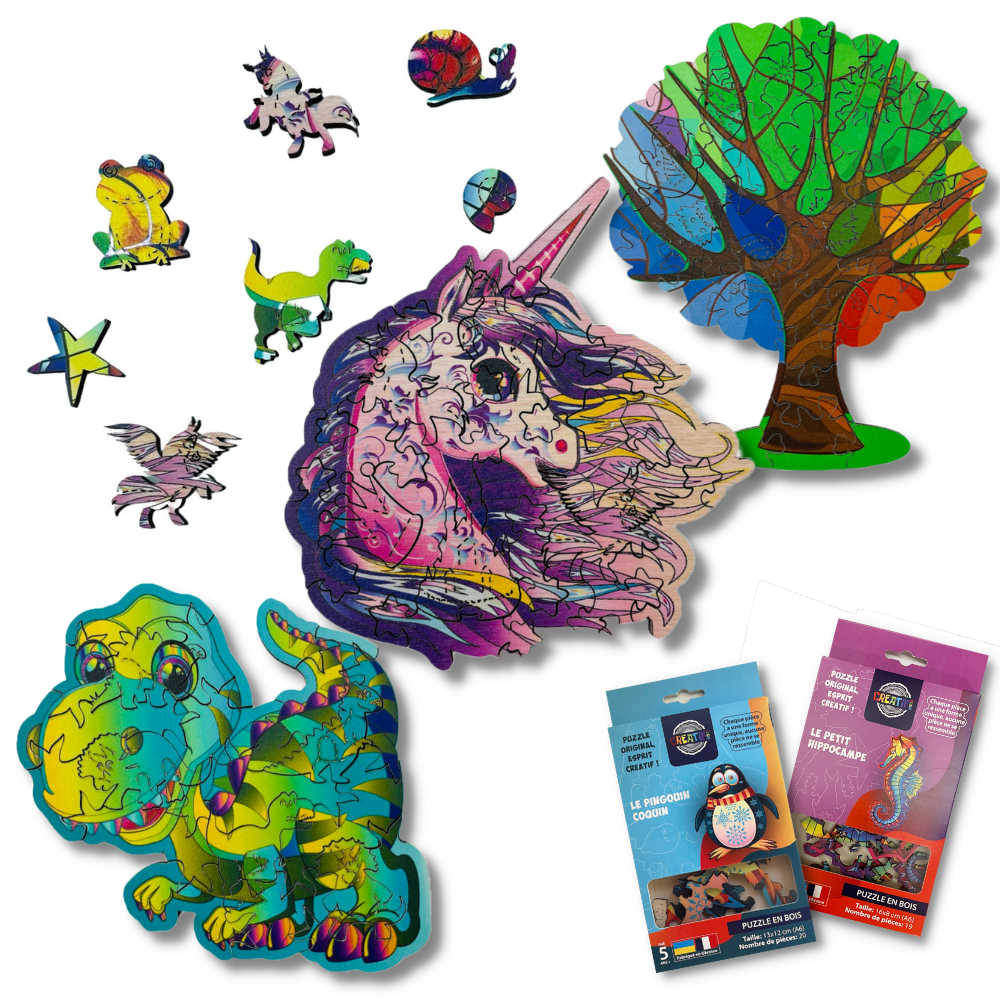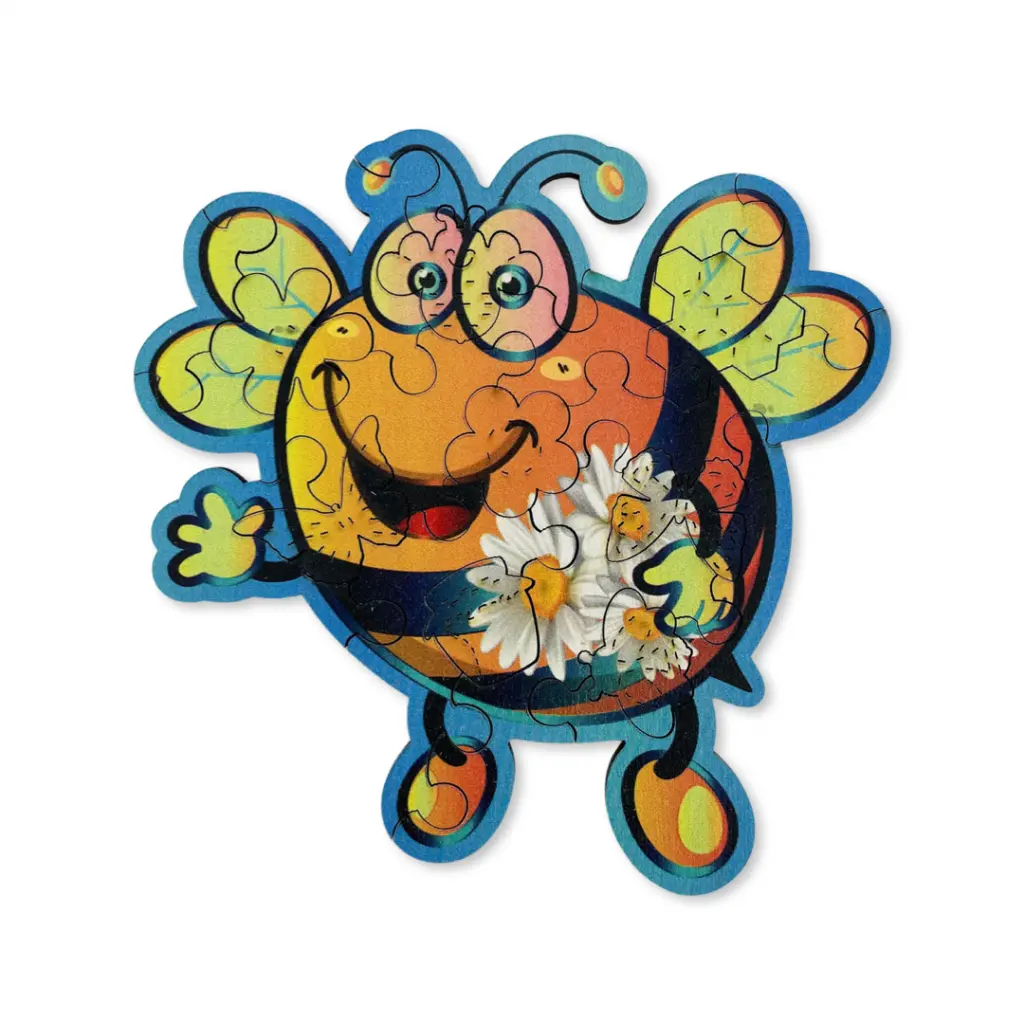For an engineer, architect, artist or designer, the ability to mentally transform shapes is crucial in their daily performance. But in order to develop advanced form transformation skills, they need to start training early.
The Benefits Of Puzzles For Children
Wooden puzzles are an ideal way to train these skills, and children should start at the age of two. Puzzles are a great way for children to develop fine motor skills, concentration and patience. They also help them learn to better observe and solve problems. Puzzles are also a great way to promote socialization, as children need to work together to complete them.
Puzzles and spatial skills
The researchers observed children aged two to four playing wooden puzzles as they would in their normal family environment. They found that playing wooden puzzles regularly predicts advanced spatial skills in children aged 54 months. In a subsequent test, at the age of 5, children who played puzzles on a daily basis, at least twice a week, achieved much better results when performing tasks involving the translation and rotation of shapes.
Boys and girls who played wooden puzzles scored better on space tests than children who did not, but the boys’ scores were better. The boys also played more complicated and complex puzzles. Scientists suspect that the difference between boys and girls is more due to parental contributions than to a real difference in spatial ability between the two sexes.
The results of the research confirm the accepted view that the practice of puzzles promotes the development of the mental skills necessary to obtain good results in disciplines such as technology, mathematics and engineering.

Development of fine motor skills
The ability to transform space is just one of many skills that children can develop by playing puzzles. Playing with large puzzles can help babies develop their overall motor skills, and for older children, manipulating small puzzle pieces promotes the development of fine motor skills. Fine motor skills are related to hand-eye coordination.
Children who develop fine motor skills early in life have a greater ability to learn to draw and write or play an instrument. If children have difficulty with hand-eye coordination when doing puzzles, this is an early sign of a developmental disorder and it means that parents should seek professional help. Early detection of a problem can increase the chances of solving it
Problem solving and intelligence
Playing wooden puzzles is an ideal way for children to learn an important skill: problem solving. Scientists see problem solving as an important aspect of intelligence. Playing wooden puzzles, with or without a photo of the finished puzzle, forces children to find the solution to the problem by finding the right room for the room. They use their experiences from previous games, but with another image, in another situation. The more puzzle games they play, the easier it becomes to find the right piece. They learn that they have to turn the room to find the right size, that they have to look at what colors and patterns go together and, most importantly, that they have to create a frame with the pieces on the edge.
These are not simple tasks for young children, but practice speeds up the speed at which they learn surprisingly. By trying different rooms for a given space, children learn to develop strategies by dividing similar rooms into groups for later use, giving their brain an extra exercise.
Perseverance
Children often have difficulty concentrating and have a short attention span. But once they have embarked on a wooden puzzle, they are able to spend an unusual amount of time playing without losing their interest in completing the picture.
The completed puzzle also gives them a sense of satisfaction, which increases their self-esteem. Playing puzzles with a sibling stimulates the competitive spirit, which reinforces the need for perseverance to complete the task as quickly as possible.

Strengthen the memory
Growing up, children are attracted to puzzles that become more and more complicated. Most of them require a photo of the completed puzzle to be played. The children associate each piece they try to place in the place they see in the photo and thus remember the good placement as with the wooden animal puzzles. In addition, if the room is not suitable, they set it aside and remember it later when they have found the right location.
Geography, history and biology
By choosing the right puzzle, parents can help their children take an interest in a difficult school subject and make it fun. If geography is a problem, a puzzle representing a map of the world can arouse an interest that the teacher has failed to create. Puzzles representing historical events such as battles can help children understand the importance of drawing inspiration from history to understand the present.
A puzzle with a picture of a skeleton or human body can be a wonderful introduction to the basic biology of human organs. Given the wide variety of puzzles available, all parents can find the one that fits the specific topic on which their child needs a little help.
Social skills
Although puzzles can be played alone, they are much more fun when played in a group or at least with a partner. Playing with others teaches children to cooperate, take turns, wait and follow the rules. There is no cheating in puzzles, there is only one way to do things, but the rules of fair play still apply.
Children learn to cooperate by dividing the task and separating the pieces by colour or pattern, for example. With more players, children can play as a team, teaching them how to form alliances and teams. Like all the best toys, puzzles teach children important social rules in a fun and playful way.

Language skills
Young children usually play with their parents, who give them instructions and help them by explaining the different parts of the puzzles, using words, sentences and terms that may be new to the children. Each new puzzle offers parents the opportunity to enrich the vocabulary of their children.
The game
In addition to fostering cognitive development, puzzles are pure entertainment and offer hours of play and fun. It is especially important that children play with their parents and grandparents, who are gradually losing their place in the education and development of children and are replaced by television and computers. Nothing can replace human relationships and interactions.
Children and parents who play together also solve other problems together, support each other and trust each other. It is no exaggeration to say that when parents play puzzles together, they create a bridge in the heads of their children. This window can allow them to recognize the problem when it presents itself to offer help and support before the problem becomes more difficult.


